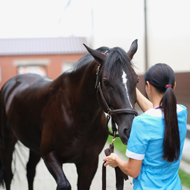
Experts reveal insights into the interconnectedness of health challenges.
A new report co-authored by the Royal Veterinary College (RVC), conducted as part of the Lancet One Health Commission, has made a series of recommendations for implementing an effective One Health approach.
The report, which involved extensive literature reviews and cross-sector stakeholder engagement, found that the way different sectors respond to health challenges is fragmented or isolated. And, because of this approach, health systems often neglect important factors like environmental conditions or social structures.
The report also found that surveillance systems across humans, animals and ecosystems are all disconnected, and there is a lack of shared framework and dedicated financing for One Health initiatives. Furthermore, it reveals low- and middle-income countries are disproportionately affected but underrepresented in funding and decision-making.
Among the report’s recommendations, which aim to improve the implementation of One Health approaches, are:
1 Institutionalise One Health and associated governance structures at global, national and local levels.
2 Operationalise One Health through policies that embrace systems thinking and incorporate the interdependencies between people, animals and environments.
3 Build integrated and shared health surveillance systems across people, animals and environments.
4 Shift economic paradigms towards equity, sustainability and health for all.
5 Ensure equitable, innovative, effective and sustainable One Health financing.
6 Institutionalise One Health in private sector governance and operations.
7 Institutionalise One Health in higher education.
8 Promote transdisciplinary One Health research and knowledge production.
9 Foster One Health literacy across society through formal and informal education.
10 Transform food systems through a One Health lens.
Professor Barbara Häsler, Professor in Agrihealth at the RVC and co-author of the report, said: ”After years in the making, we are very proud to see the Lancet One Health Commission report published. It provides deep and nuanced insights into the interconnectedness of the many health challenges the world is facing, and sheds light on topics neglected to date in One Health.
“The report highlights the need for multi-sectoral, multi-stakeholder and systemic solutions where everyone has a role to play. With its recommendations and avenues for the future of One Health, it is an excellent resource for sparking dialogue on how we can tackle collectively and collaboratively pressing health challenges like the triple planetary crises (climate change, biodiversity loss, and pollution), infectious diseases, food system risks, and antimicrobial resistance.”
The Lancet One Health Commission report can be viewed in full at: https://www.thelancet.com/journals/lancet/article/PIIS0140-6736(25)00627-0/fulltext
Image (C) Shutterstock.



 The BEVA has opened two new roles on its Nurse Committee.
The BEVA has opened two new roles on its Nurse Committee.